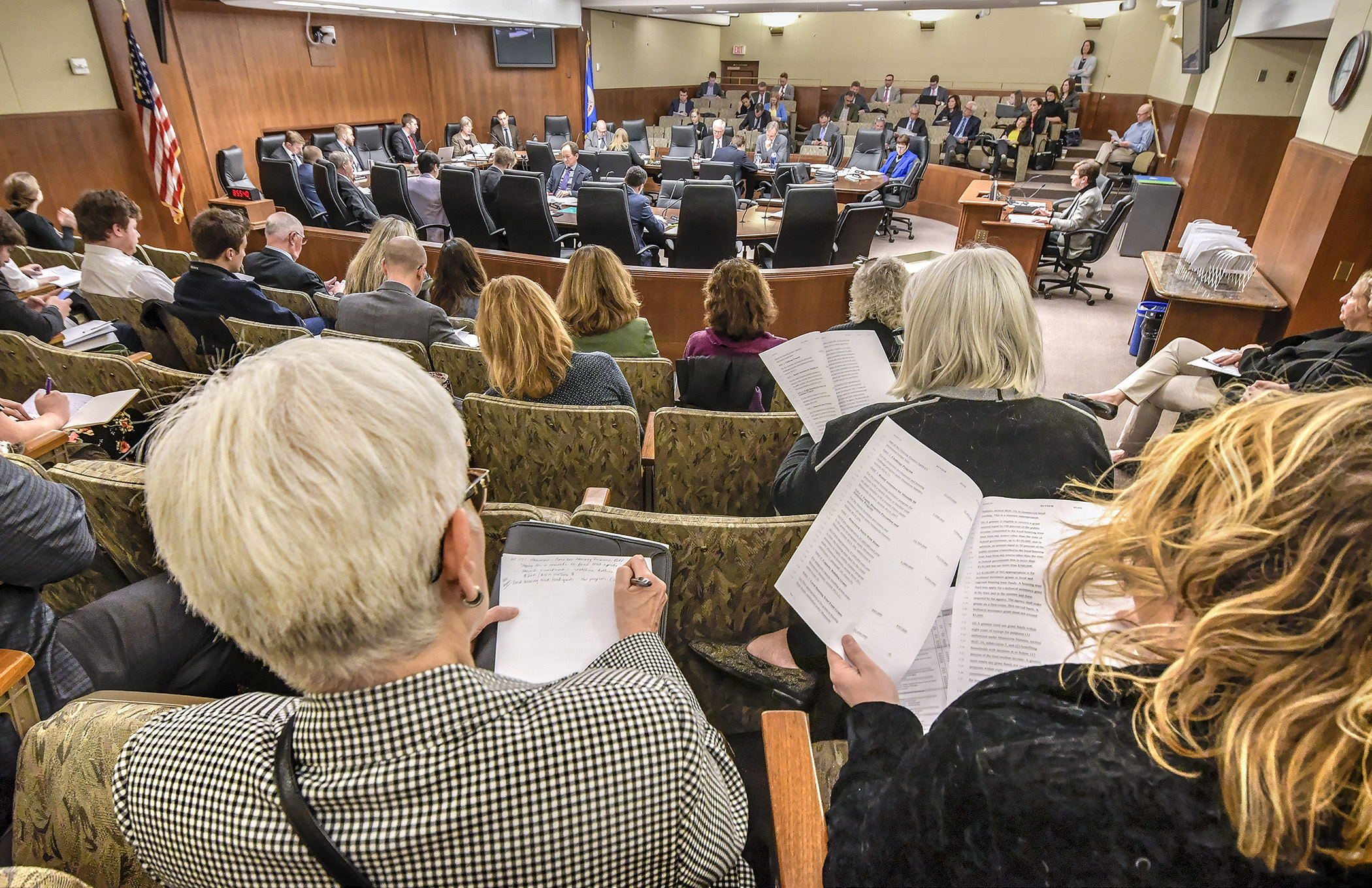'Hoping for a miracle' to fix Minnesota's housing crisis

Minnesota is in a housing crisis, and the budget targets reflected in an omnibus bill just aren’t high enough to address it, testifiers told the House Housing Finance and Policy Division Wednesday.
“I’m still hoping for a miracle before the end of session,” said Rep. Alice Hausman (DFL-St. Paul), the division chair.
She sponsors HF1151, the omnibus housing finance bill, which was approved as amended and referred to the House Ways and Means Committee.
The $131.6 million bill represents an increase of nearly $26 million in the 2020-21 biennium, $10 million of which is one-time funding, Hausman said.
It attempts to “at least … keep all of the programs on the spreadsheet,” so they can be discussed during conference committees, she said.
“This really represents an investment in the continuum of housing … (but) it’s not enough,” said Libby Murphy, policy co-chair for Homes for All. “We are in a housing crisis and these investments do not reflect the need across the state.”
Murphy, other housing advocates, and division members, said additional housing needs could possibly be met through taxing or bonding provisions.
One area that received full funding, and enthusiastic support, was $6 million for the Homework Starts at Home program.
“We all know the importance of … a stable home to grow and thrive,” and the impacts steady housing can have on a child’s life academically, socially, and emotionally, said Dominic McQuerry, public policy manager for the Amherst H. Wilder Foundation.
Testifiers and division members alike expressed concern and disappointment that several areas went unfunded or underfunded, particularly in regard to rental assistance and modular and manufactured homes.
Most people cannot afford the types of housing supported by the division, but could find safe, affordable, housing in manufactured home communities. However, stability and growth are hampered by a lack of resources to address infrastructural concerns and a lack of access to funds available to other housing providers, said Shaun McElhatton, senior development counsel for the Northcountry Cooperative Foundation.
“We, as a committee, have completely walked past the opportunity,” said Rep. Duane Sauke (DFL-Rochester). “I think we are being driven, oftentimes, by our legacy bias. … I feel very disappointed that that is what has happened.”
Hausman agreed with this disappointment and said some provisions absent from the House bill are funded in the Senate bill and could be discussed further during conference committees. Sen. Rich Draheim (R-Madison Lake) sponsors the companion, SF1577, which awaits action by the Senate Agriculture, Rural Development, and Housing Policy Committee.
Rep. Brian Johnson (R-Cambridge) and Rep. Tama Theis (R-St. Cloud) opposed the bill’s lack of reform measures regarding state regulations and building codes, which they said would lower construction costs and make Minnesota more competitive.
Johnson also expressed concern that the bill does not include sufficient reporting mechanisms. “We have no idea where that money goes once it leaves here since it’s all in grants.”
Other notable provisions include:
- $7 million in one-time funding to support a Local Housing Trust Fund match;
- $6 million in rental assistance for mobile students through the Homework Starts with Home initiative;
- $4 million increase to the Challenge Program, for a total of $29.85 million;
- $2 million increase to Family Homeless Prevention programming, for a total of $19.04 million;
- $2 million increase in rental assistance for people with mental illnesses, through Bridges, for a total of $10.18 million;
- $2 million to support a program identifying lead paint and providing abatement services in rental housing;
- $2 million to support a Workforce Homeownership Program;
- $800,000 for a home ownership capacity program; and
- $200,000 in capacity-building grants, for a total of $1.49 million.
What’s in the bill?
The following are selected bills that have been incorporated in part or in whole into the omnibus housing finance bill:
- HF859 (Gunther)
- HF964 (Bierman)
- HF1007 (Fischer)
- HF1151 (Hausman)
- HF1401 (Howard)
- HF1402 (Howard)
- HF2208 (Mahoney)
- HF2336 (Howard)
Related Articles
Search Session Daily
Advanced Search OptionsPriority Dailies
Ways and Means Committee OKs proposed $512 million supplemental budget on party-line vote
By Mike Cook Meeting more needs or fiscal irresponsibility is one way to sum up the differences among the two parties on a supplemental spending package a year after a $72 billion state budg...
Meeting more needs or fiscal irresponsibility is one way to sum up the differences among the two parties on a supplemental spending package a year after a $72 billion state budg...
Minnesota’s projected budget surplus balloons to $3.7 billion, but fiscal pressure still looms
By Rob Hubbard Just as Minnesota has experienced a warmer winter than usual, so has the state’s budget outlook warmed over the past few months.
On Thursday, Minnesota Management and Budget...
Just as Minnesota has experienced a warmer winter than usual, so has the state’s budget outlook warmed over the past few months.
On Thursday, Minnesota Management and Budget...